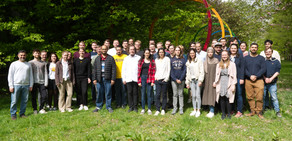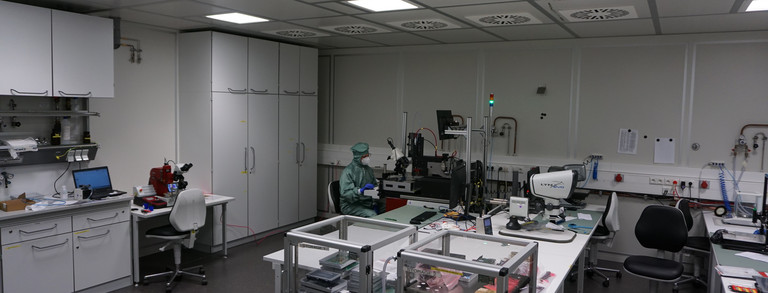Theses
You are interested in writing a thesis in the field of experimental particle physics?
We offer topics for bachelor and master theses on current research questions focussing on the reconstruction of hadronic signals in the ATLAS detector. An overview of the topics currently available in our junior research group can be found at the bottom of this page. Below there is also an overview of the theses written so far in our group on this topic.
If you are interested in one of the currently available topics, or if you would like to discuss other possiblities or topics in the field of particle physics, please feel free to contact us. We are looking forward to a chat with you.

Contact
Currently available topics for theses
Large-radius jet calibration for the HL-LHC
- Teilchenphysik - NWG Delitzsch
Before jets can be used in measurements or searches for new physics, a large number of calibrations steps are required, which are based on both Monte Carlo (MC) generated pseudo data and data recorded at the ATLAS detector. After reconstruction, the jets are first calibrated using MC in order to correct for possible effects in the reconstruction. For example, neutrinos can be produced in the hadronic shower that leave the detector without leaving any energy behind, i.e. energy is lost in the reconstruction. Furthermore, hadrons could lie outside the radius of the jet and their energy could also be lost. This is followed by an in situ calibration, in which deviations in the jet energy scale (JES) between the data and MC-generated pseudo data are removed. The JES corrects for effects of the detector, such as losses due to passive detector material, fragmentation and pileup (simultaneous pp collisions) effects.
Various analyses are combined for the in-situ calibration in order to cover a large kinematic range. In the direct-balance method with Z+jets events, a selection is used in which a large-radius jet and a dileptonically decaying Z boson, which is produced in the opposite direction to the jet, are selected. A well-calibrated reference object is constructed from the charged lepton pairs, which is used to calibrate the transverse momentum of the jet, simply using momentum conservation when no further hadronic activity is present
In this project, studies shall be carried out in preparation for the upgrade of the LHC (High-Luminosity LHC), which should serve as validation of the simulation and detector conditions. Furthermore, it will be demonstrated that the method still works at high pileup rates, as many events will contain additional hadronic activity.
Completed theses
Master theses
| Jan Jäkel | Jet-Lepton Overlap Removal Optimization in context of the boosted H to WW to lnuqq measurement using Run 2 data in ATLAS | April 2024 |
| Simone Ruscelli | Feasibility studies for the extraction of the efficiency of boosted W/Z identification algorithms in diboson events using 13 TeV proton-proton collisions in ATLAS | September 2023 |
Bachelor theses
| Joel Koch | Quark versus gluon tagging in the forward direction using topo-towers with the ATLAS detector | August 2023 |
| Bastian Schuchardt | Achievable performance of boosted object identification algorithms using machine learning techniques in ATLAS | Juli 2023 |
| Simon Unterste-Wilms | Performance of boosted object identification in fast simulation at the ATLAS Experiment | Februar 2023 |



